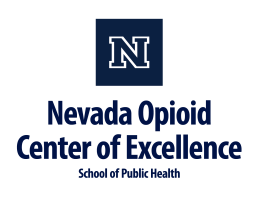The Suicide Prevention Network invites you to Hope in Action: Building Skills for a Resilient Tomorrow, a 4-hour training event designed to strengthen those who strengthen others by protecting boundaries, restoring hope, building resilience, and fostering community. This training will cover key topics including Opioid Use Disorder (OUD) and current trends, case management and referral practices, professional boundaries, and suicide prevention and intervention.
Who Should Attend?
Counselors, Social Workers, Psychologists, Behavioral Health Specials, and all professionals in community health work.
Continuing Education Units: 4 CEUs
This training is approved for continuing education by the boards listed here.
Click to Register
_______________________________________________________________________________________________________________
Part 1 – Nevada Overdose Landscape: Douglas County Spotlight
Presented by: Taylor Lensch, Ph.D., MPH, Associate Director, Larson Institute, University of Nevada, Reno
This 30-minute pre-recorded presentation, developed in collaboration with OD2A, provides an overview of the most current opioid use disorder (OUD) data and trends. The presentation focuses on the Quad Counties region to give participants the most relevant and localized information available. Attendees will gain insight into emerging patterns, recent data findings, and key considerations for prevention and response efforts in Nevada.
_______________________________________________________________________________________________________________
Part 2 – Navigating Opioid Use Disorder in Clinical Practice: Case Management, Referrals, and Professional Boundaries
Presented by: Jennifer Calloway Ross, Ph.D., Director, Community Behavioral Health Collaborative, University of Nevada, Reno
This 90-minute presentation provides essential knowledge and practical skills for working with clients experiencing opioid use disorder. Participants will learn evidence-based case management strategies, understand Nevada’s specific legal requirements for OUD referrals, and explore critical professional boundary considerations when treating clients with substance use disorders. Through interactive case studies and regulatory review, attendees will gain confidence in providing ethical, legally compliant, and clinically effective services within their scope of practice.
Learning Objectives:
By the completion of this workshop, participants will be able to:
- Develop competence in assessing for opioid use disorder in the context of DSM-5-TR criteria and determining appropriate care strategies
- Demonstrate understanding of Nevada’s referral requirements for opioid use disorder as specified in Assembly Bill 156
- Execute appropriate and timely referrals for medication-assisted treatment and specialized addiction services in accordance with Nevada law
- Identify and maintain appropriate professional boundaries when working with clients experiencing substance use disorders
_______________________________________________________________________________________________________________
Part 3 – Suicide Prevention
Presented by: Misty Vaughan Allen, MA, Nevada Office of Suicide Prevention
This training equips mental health professionals with essential tools and strategies to effectively assess suicide risk, implement safety planning, and respond to crises with cultural sensitivity. Participants will explore evidence-based approaches to suicide intervention, learn how to develop personalized safety plans, and deepen their understanding of cultural factors that influence suicide risk and prevention. Through interactive discussions and exploration of available tools, this session fosters confidence and competence in supporting a person with thoughts of suicide, while honoring diverse backgrounds.
By the end of this presentation, participants will be able to:
- Learn about suicide risk assessments using validated tools and clinical judgment to identify signs, risk factors, and protective factors.
- Develop and implement safety plans tailored to individual needs, incorporating protective factors and support systems.
- Apply crisis response strategies that prioritize client safety, de-escalation, and continuity of care.
- Learn about culturally respectful and competent approaches to be more effective in recognizing how cultural, racial, ethnic, and socioeconomic factors impact suicide risk and intervention.
_______________________________________________________________________________________________________________
Funding for this activity was made possible in whole or in part by the Nevada Department of Health and Human Services (DHHS) Director’s Office through the Fund for a Resilient Nevada, established in Nevada Revised Statutes 433.712 through 433.744. The opinions, findings, conclusions, and recommendations expressed in our courses are those of the author(s) and do not necessarily represent the official views of the Nevada Opioid Center of Excellence or its funders.

